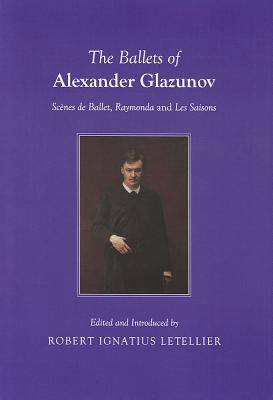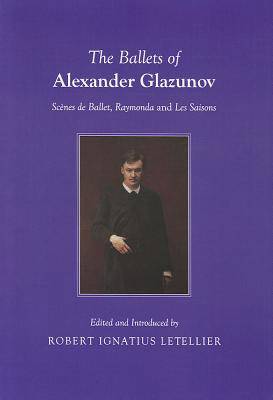
- Retrait gratuit dans votre magasin Club
- 7.000.000 titres dans notre catalogue
- Payer en toute sécurité
- Toujours un magasin près de chez vous
- Retrait gratuit dans votre magasin Club
- 7.000.000 titres dans notre catalogue
- Payer en toute sécurité
- Toujours un magasin près de chez vous
52,95 €
+ 105 points
Description
Daniel-Francois-Esprit Auber (1782-1871) was long considered one of the most typically French as well as one of the most successful of the opera composers of the 19th century. Although musically gifted, he initially chose commerce as a career, but soon realized that his future lay in music. He studied under Cherubini, and it was not long before his opera-comique La Bergere Chateleine (1820), written at the age of 38, established him as an operatic composer. Perhaps the greatest turning point in Auber's life was his meeting with the librettist Eugene Scribe (1791-1861), with whom he developed a long and illustrious working partnership that only ended with Scribe's death. Success followed success; works such as Le Macon (1825) and La Muette de Portici (1828) brought Auber public fame and official recognition. In 1829 he was appointed a member of the Institut, in 1839 Director of Concerts at Court, in 1842 Director of the Conservatoire, in 1852 Musical Director of the Imperial Chapel, and in 1861 Grand Officer of the Legion d'Honneur. Auber seems to have been fated to live in revolutionary times; during his long life no less than four revolutions took place in France (1789, 1830, 1848, 1870). Auber's famous historical grand opera La Muette de Portici (also known by its hero's name as Masaniello) is perhaps unsurprisingly based on revolution, depicting the 1647 Neapolitan uprising against Spanish rule. It is a key work in operatic history, and has a revolutionary history itself: it was a performance of this work in Brussels in 1830 that helped spark the revolution that led to the separation of Belgium from Holland. It was a revolution that hastened Auber's death at the old age of 89. He died on 12 May 1871 as a result of a long illness aggravated by the privations and dangers of the Siege of Paris. He had refused to leave the city he had always loved, even after his house had been set on fire by the petroleurs et petroleuses. In a twist of fate, a mark had been placed on the house of the composer of Masaniello, the very voice of Romantic liberty! Auber's overtures were once instantly recognizable, favourites of the light Classical repertoire. His gracious melodies and dance rhythms had a huge influence, both on piano and instrumental music, and on the genre of Romantic comic opera, especially in Germany. Musical tastes and fashions have changed, and contemporary audiences are more accustomed to the heavier fare of verismo, Wagnerian transcendentalism, and twentieth-century experimentalism. The operas themselves, apart from Fra Diavolo (1830), are seldom performed, yet Auber's elegant, delicate and restrained art remains as appealing to the discerning listener as ever it was. Zerline, an opera in three acts with libretto by Eugene Scribe, was first performed at the Academie nationale de musique (Salle de la rue Le Peletier) on 16 May 1851. The scene is set in Palermo, during the Restoration. The Prince of Roccanera, married to the sister of the King, has a supposed niece, Gemma. She is really his daughter by Zerline, an orange-seller. The latter was abducted by pirates, and having returned to Palermo after many trials, now meets her daughter, assuming the role of her aunt. She learns that Gemma loves a young naval officer, Rodolphe, but that the Prince's wife wishes Gemma to marry the King's cousin, much against the girl's wishes. In the third act, Zerline, already alerted to an intrigue compromising to the two young lovers, is able to safeguard their integrity and bring about their union. The action is better suited to a vaudeville than an opera, and the scenario has little innate interest. The role of Zerline was devised especially for the great contralto Marietta Alboni (1823-94), the first role she created. The B-flat major overture immediately establishes the family nature of the drama, with its parable of past sins, social disparity and all-conquering maternal love. There is allusion to the Sicilian setting in the two opening choruses of act 1 which are dominated by barcarolle rhythms in establishing the couleur locale. Alboni's magnificent talent added great value to the light music written by Auber for this slight canvas. The work consequently contains many pieces of a purely virtuoso nature. Among them are the grand air d'entree O Palerme! o Sicile!, the thematically central canzonetta Achetez mes belles oranges, and the duet for soprano and contralto Quel trouble en mon ame in act 1. It is as though the Italian setting of the story and the Italian origins of the prima donna caused Auber to look to his early love for Rossini, and his enduring attachment to Italian musical forms and local colour (as in Fiorella, La Muette de Portici, Fra Diavolo, Acteon, La Sirene, Zanetta and Haydee). The vocal part of Zerline is a conscious re-creation of the old Rossini mode, and her various solos are written in the style of the virtuoso contralto of the opera seria, obviously with a contemporary Gallic fleetness all Auber's own. The Grand Air demonstrates all the features. The original cast was: Merly (Roccanera); Mlle Marietta Alboni (Zerline); Mlle Maria-Dolores-Benedicta-Josephine Nau (Gemma); Aimes (Rodolphe); Mlle Dameron (the Princess of Roccanera); and Lyons (the Marquis of Bettura). The work was only performed 14 times in Paris, with no reprise. It was translated into Italian, and produced in Brussels (in French) and London (in Italian).
Spécifications
Parties prenantes
- Auteur(s) :
- Editeur:
Contenu
- Nombre de pages :
- 299
- Langue:
- Anglais
Caractéristiques
- EAN:
- 9781443829663
- Date de parution :
- 01-07-11
- Format:
- Livre broché
- Format numérique:
- Trade paperback (VS)
- Dimensions :
- 206 mm x 292 mm
- Poids :
- 907 g







